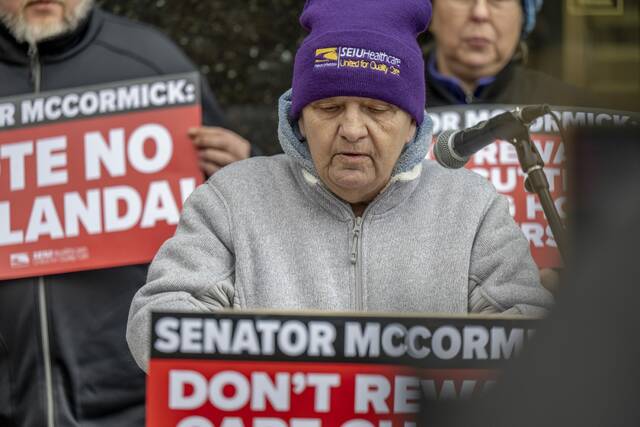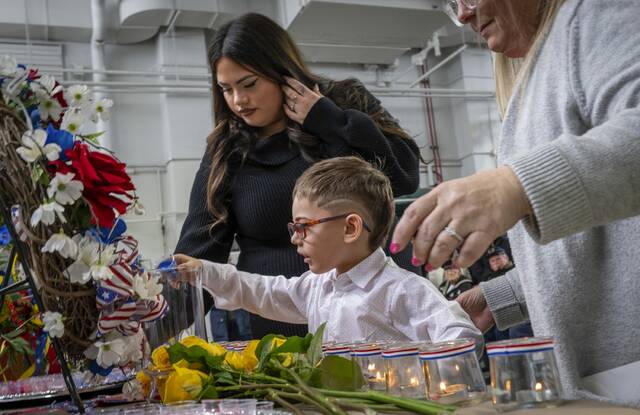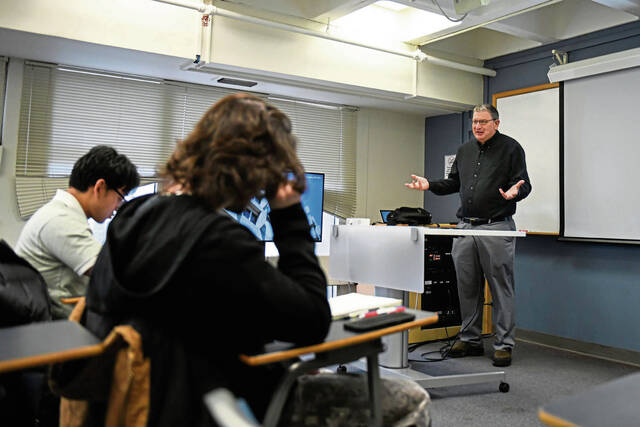Colleges across the country are extending spring breaks, shuttering classrooms and transitioning to online formats as fears of coronavirus spread.
Unprecedented, sweeping changes have reached from the halls of the oldest Ivy League institutions to sprawling land grant institutions and the tiniest community colleges, said Brad Farnsworth, vice president for global engagement with the American Council on Education, a Washington, D.C.-based organization that represents 1,700 colleges and universities.
“I’ve never seen anything like it. The only thing I would compare it to might be 9/11. And the big difference then was they only canceled classes for a day or two,” Farnsworth said. “It came on very quickly.
“I think the movement to online education has had a snowballing, cascading affect.”
The move to cancel face-to-face classes for the time being began in coronavirus hot spots on the West Coast. The University of Washington became the first major university to go to virtual classes last week. UCLA, Duke , Harvard, Rutgers and a host of others quickly followed suit.
On Wednesday, the University of Pittsburgh, Carnegie Mellon, Duquesne and Penn State announced a move to online classes, as did Slippery Rock, Edinboro and California University of Pa.
Once only a concept, online learning has crept steadily into American higher education in recent years. Some students at brick-and-mortar campuses already take as many as half of their credits online.
Nonetheless, the quick transition away from lecture halls and classrooms has not been entirely smooth. College and university officials have had to make arrangements for students and researchers working largely in campus laboratories to continue their work.
“It is a major disruption,” Farnsworth said.
Cameron Davies, a sophomore at Slippery Rock, was at her home in Gilpin, near Leechburg, on spring break Wednesday when she learned Slippery Rock was suspending face-to-face instruction.
“A few of my friends mentioned that this was a possibility, but I didn’t think it would mean this long of a break,” she said. “It’s possible we may be home the rest of the semester. I have most of my stuff in my room, so I may go (Thursday) to get some necessities for the next few weeks.”
Not only are there questions of computer connections and access to labs, there is also the issue of whether students will be reimbursed for room and board if they are told to leave or not to return to campus.
And then there are the hundreds of thousands of out-of-state and international students at U.S. colleges and universities who cannot make their way home easily — either due to financial issues or travel restrictions.
Locally, Pitt and Carnegie Mellon University alone enroll more than 8,000 international students, many of them from China and India.
West Virginia University, which on Tuesday announced a move to online classes, has arrangements to continue housing international students who live in university housing. Many details still are being ironed out by administrators during the ongoing spring break, a spokesman said.
At many colleges where there have been no reports of coronavirus, decisions were driven in part by concerns that students returning from all over the world after spring break might have been exposed to the virus.
Decisions to interrupt classes midway through the semester, during peak recruitment periods, weren’t taken lightly, Farnsworth said.
“Everybody is scrambling. It would be optimistic to say this won’t have an impact on enrollment next fall. … But I am impressed by how deeply cautious these institutions are being,” he said.








